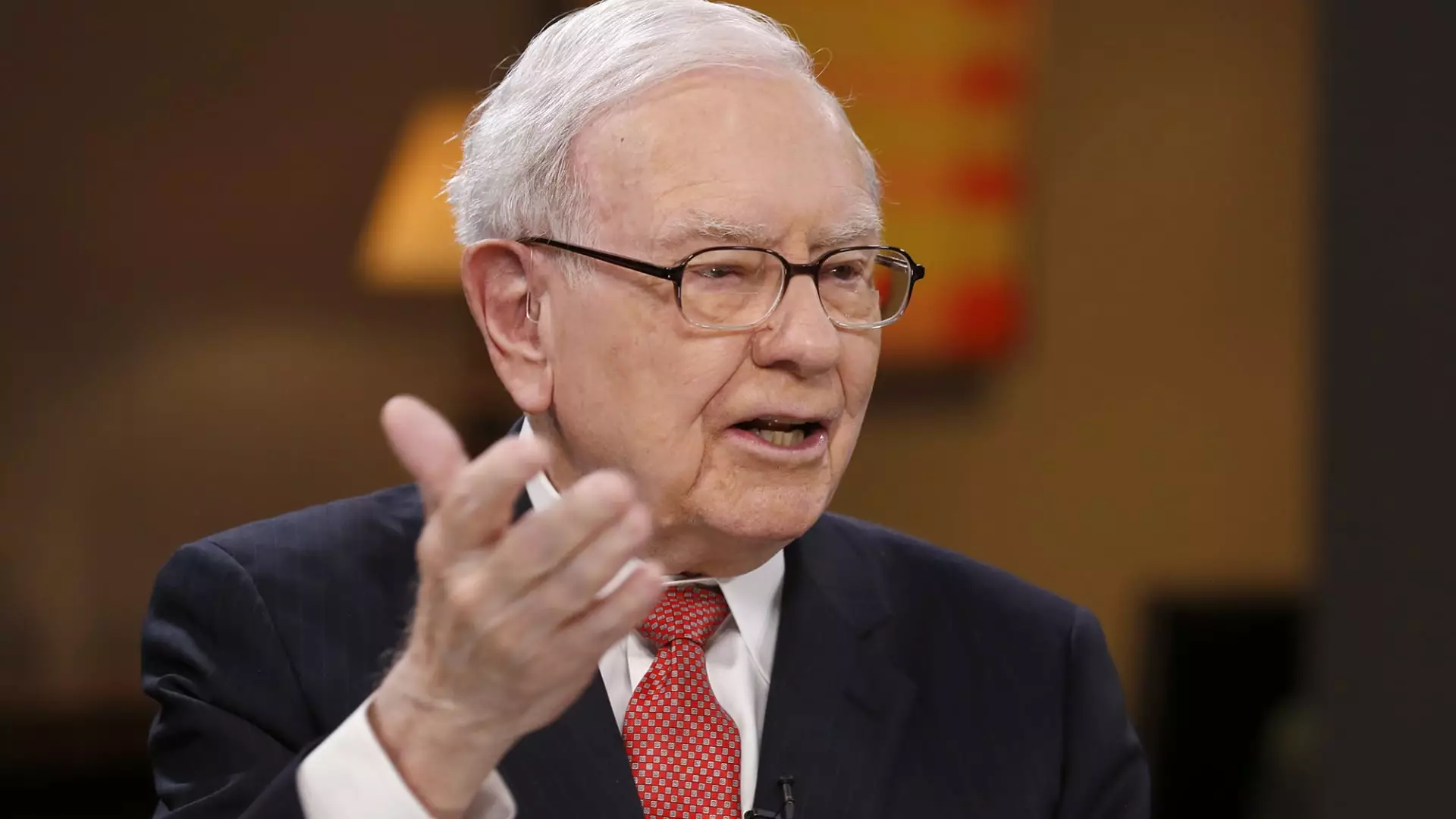Berkshire Hathaway, led by the renowned Warren Buffett, has long been a stalwart in the investment world, known for its steady performance and value-oriented approach. However, recent actions by top executives, particularly Ajit Jain, who has been with the company for nearly four decades, have sent ripples through the investment community. The sale of significant stock holdings and a noticeable slowdown in stock repurchases prompt a closer examination of the potential implications behind these moves.
In a surprising turn of events, Ajit Jain sold more than half of his Berkshire Hathaway shares, amounting to approximately $139 million. This act marked the first time Jain had sold such a hefty portion of his stake since his appointment by Buffett in 1986. Given the recent record high of Berkshire Class A shares, closing above $700,000 for the first time, one cannot help but speculate about the motives behind Jain’s decision. Was he signaling that the stock had reached its peak valuation? The stock’s impressive performance in 2024, climbing nearly 24%, raises questions about whether further growth is sustainable.
Analysts, including Steve Check of Check Capital Management, believe that Jain’s actions indicate a belief that Berkshire shares are perhaps no longer priced attractively. While Jain’s sale does not necessarily mean a lack of confidence in Berkshire’s operations, it does suggest a careful assessment of market conditions. Such a viewpoint is crucial, as it implies a cautious approach toward future investments not only by Jain but potentially across the board at Berkshire.
Warren Buffett himself seems to mirror this cautious sentiment as evidenced by Berkshire Hathaway’s significantly reduced stock buyback activities. The company authorized only $345 million in stock repurchases last quarter, a stark decline compared to the $2 billion repurchased in each of the preceding quarters. Buffett has long emphasized value in purchasing own shares; he only engages in buybacks if he believes the stock is undervalued. His reduced purchases could mean he no longer sees the same value in Berkshire’s stock, indicating a strategic shift that reflects his commitment to preserving capital.
Buffett’s position becomes even more pronounced when he acknowledges the inherent limitations of size that come with operating such a massive conglomerate. In his annual letter, he tempered expectations, suggesting that due to Berkshire’s sheer size and the lack of compelling investment opportunities, the company may only slightly outperform the average American corporation. This realistic outlook sheds light on Buffett’s strategic reasons for being more reserved in the current market environment.
Adding further intrigue to this situation is Buffett’s decision to sell shares in some of his largest holdings, including significant reductions in Bank of America and Apple, bringing total sales this year to over $90 billion. Such substantial divestitures could be interpreted in various ways. On one hand, it may reflect a deliberate portfolio management strategy in response to inflated stock valuations. Alternatively, such moves might hint at an underlying bearish sentiment towards market conditions.
Buffett’s sales of blue-chip stocks, historically seen as safe bets, invite additional speculation. Given that these two stocks were among his largest positions, the decision to reduce holdings raises questions about future expectations for both the broader market and individual companies. Furthermore, Buffett’s potential motivation of tax efficiency could lead one to deduce that he is preparing for a shift in strategy that emphasizes capital preservation over aggressive investing.
The recent actions of both Ajit Jain and Warren Buffett suggest a possible recalibration of investment strategies at Berkshire Hathaway. With Jain’s significant stock sale and Buffett’s notable lack of buybacks after a period of aggressive repurchase activity, there seems to be an overarching sentiment of caution within the organization.
This shift could lead investors to rethink their positions and expectations regarding Berkshire Hathaway. The very essence of value investing may be undergoing a transition, particularly as the landscape changes and the company navigates through new market realities. One thing remains clear: the decisions coming from the high echelons of Berkshire Hathaway will continue to be closely watched by investors and analysts alike as they try to interpret the future direction of this iconic company.


Leave a Reply